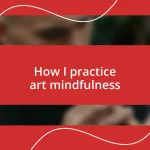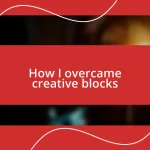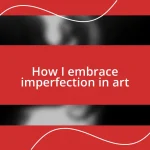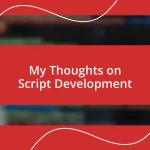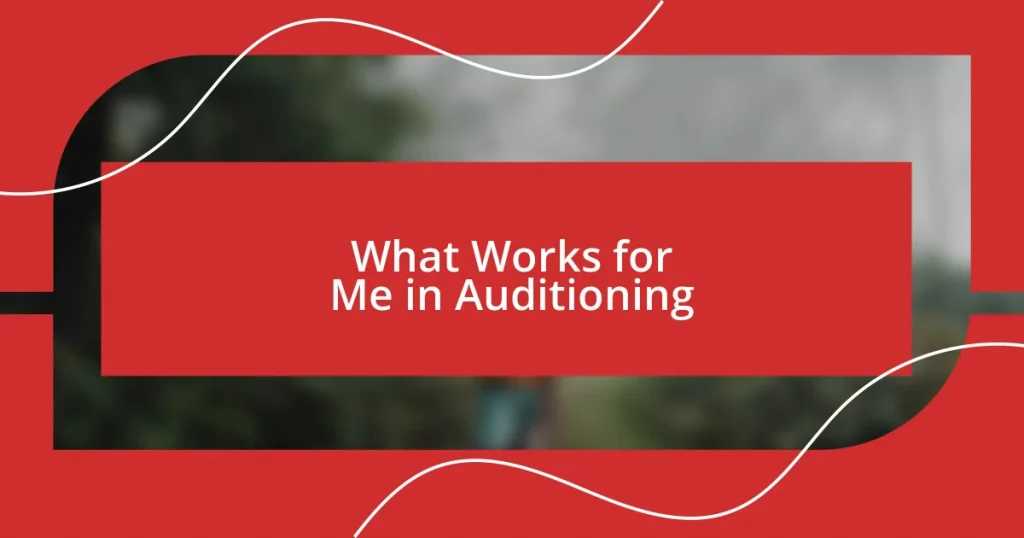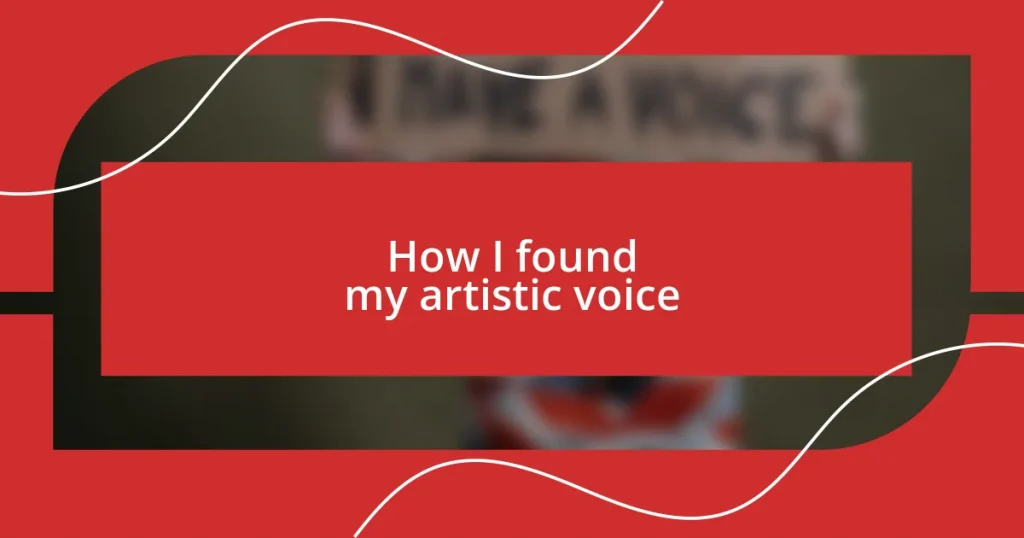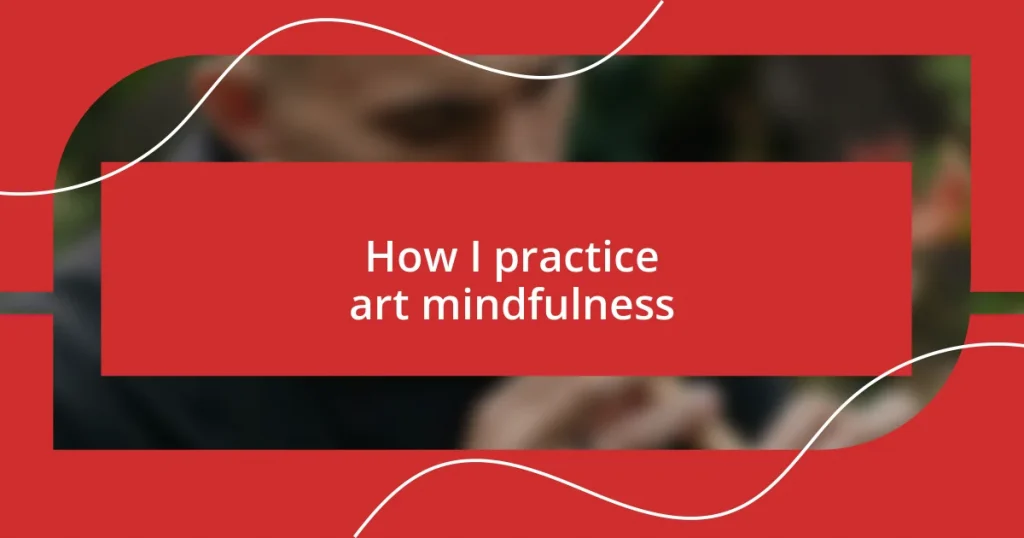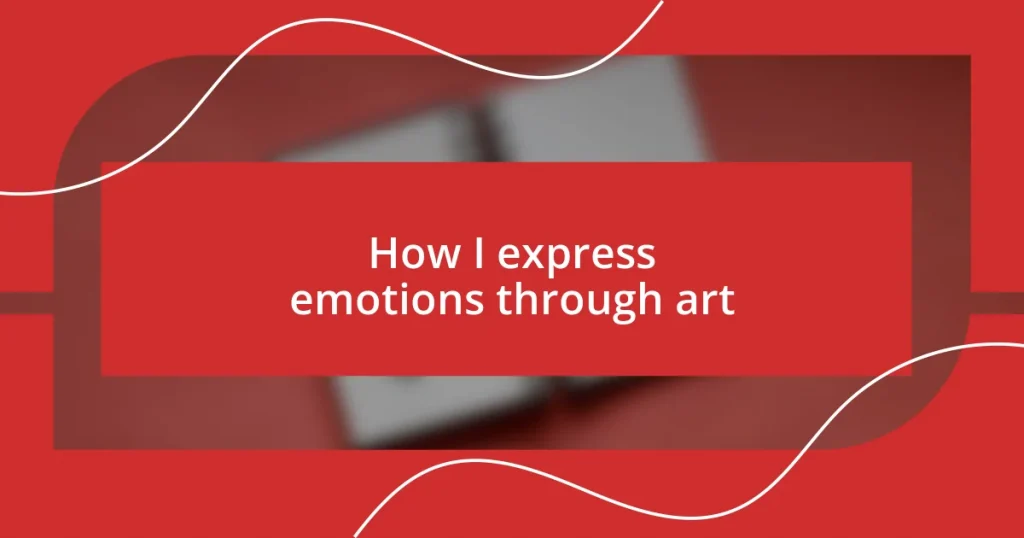Key takeaways:
- Shifting mindset from pressure to enjoyment during auditions enhances performance and encourages connection.
- Effective preparation involves personal rehearsal, in-depth character study, and maintaining a healthy routine to manage nerves.
- Reflecting on auditions and seeking feedback fosters growth and deepens understanding of performance nuances.
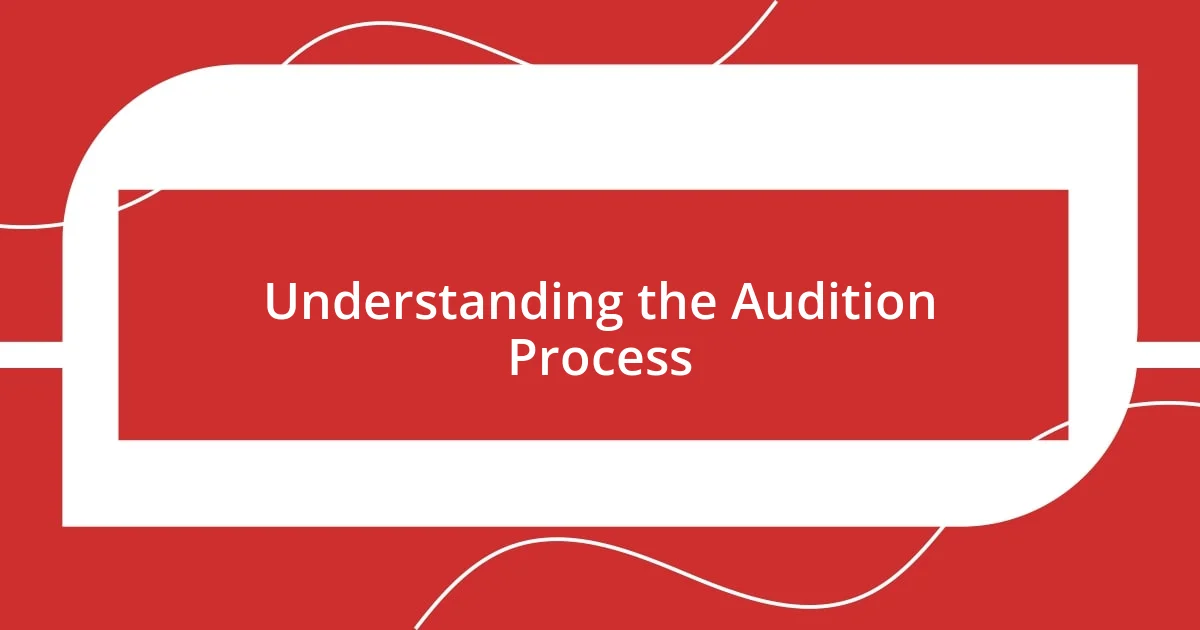
Understanding the Audition Process
Understanding the audition process can feel daunting, but I’ve learned that breaking it down makes it manageable. I remember my first audition—my heart raced, and I second-guessed every choice. Isn’t it interesting how one moment can feel like a lifetime?
A key aspect to grasp is that auditions often serve not just as a test of talent, but as an opportunity to connect. I once walked into a room full of casting directors and felt that unmistakable pressure. But instead of focusing solely on impressing them, I shifted my mindset to enjoying the moment—how could I bring my unique self to the table? That small shift in perspective changed everything for me.
Many might wonder why feedback isn’t always provided after an audition. Let me tell you, I’ve faced this a lot! While it can be frustrating, I’ve realized that it often comes down to the sheer volume of performers. Rather than getting discouraged, I’ve trained myself to use each audition as a learning experience—every time I step into that room, I’m honing my craft, no matter the outcome.
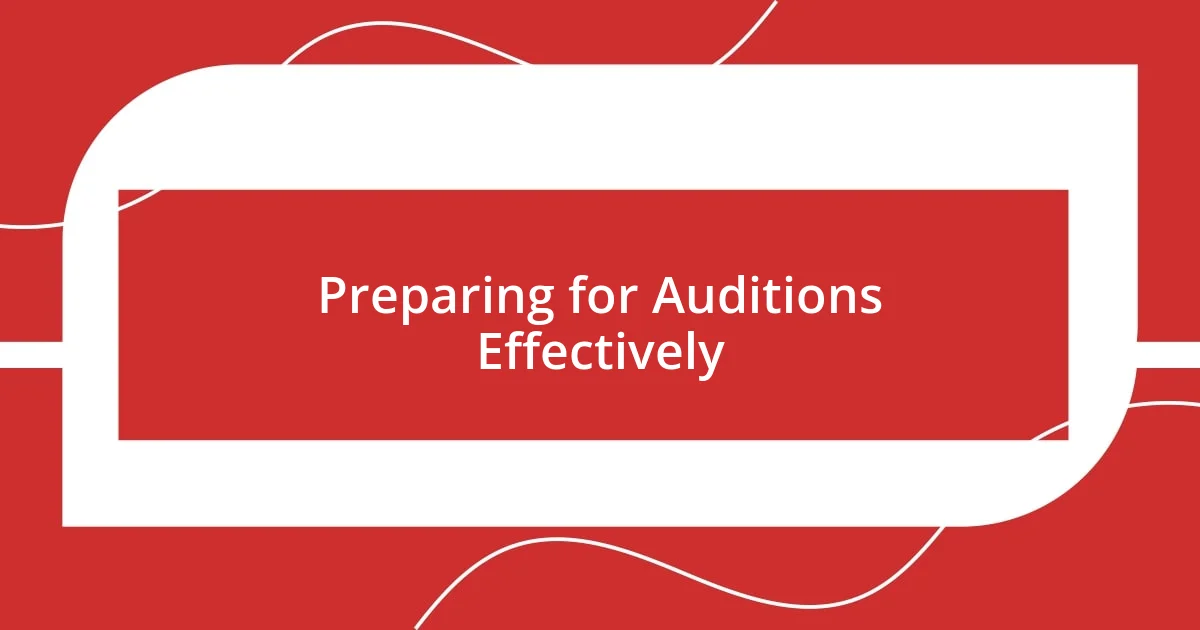
Preparing for Auditions Effectively
Preparing for auditions effectively starts with proper preparation, and I can’t stress enough the importance of personal rehearsal time. I remember spending hours in front of the mirror, not just practicing lines, but also working on my presence. There’s something magical about seeing yourself perform—it really helps to identify what resonates and what feels off. Have you ever tried it? It’s not just about getting the words right; it’s about finding your own rhythm and comfort zone.
Moreover, I’ve found that studying the role and the material beforehand can significantly boost my confidence. I still recall an audition for a character that was quite different from my own personality. Initially, I felt out of my depth, but once I dove deep into the character’s backstory, I felt a connection that transformed my performance. Doing this rigorous groundwork helps me not only in memorization but also in making the character more relatable and authentic.
Also, managing audition day nerves is crucial. One time, I underestimated the power of a good breakfast and proper hydration. I was so caught up in my mental prep that I almost forgot to fuel my body. Now, I make it a point to eat well and stay hydrated, believing that a clear mind and a steady body help me shine when it counts. Have you thought about how small habits can turn into big performance enhancers?
| Preparation Technique | Description |
|---|---|
| Mirror Rehearsals | Practice in front of a mirror to enhance presence and identify strengths. |
| Character Study | Dive deep into the character’s backstory to create relatability and authenticity. |
| Healthy Routine | Maintain a balanced diet and hydration to support mental clarity and physical readiness. |
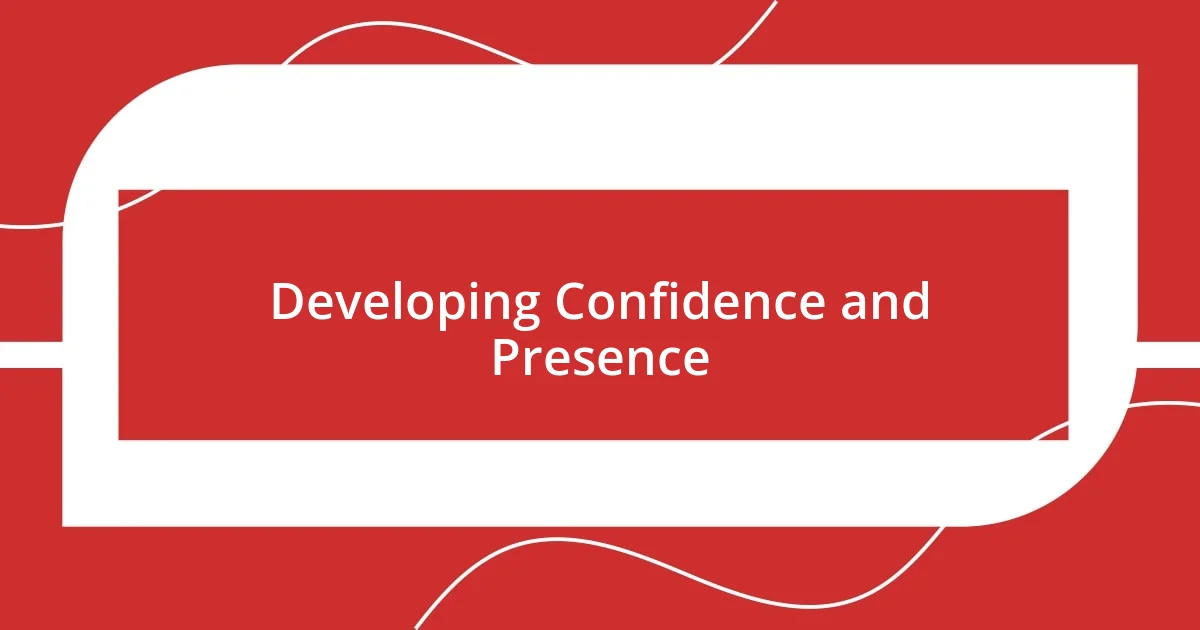
Developing Confidence and Presence
When I think about developing confidence and presence, an important technique I rely on is visualization. Before an audition, I settle into a quiet space, close my eyes, and imagine myself on stage or in front of the panel, fully in control and connecting with the material. I can almost hear the applause, feel the energy in the room, and it makes the experience feel real. This practice not only calms my nerves but also allows me to build a sense of ownership over the performance.
To further bolster my presence during auditions, I focus on grounding techniques. When I step into the audition room, I intentionally shift my weight from one foot to the other and anchor myself with deep, calming breaths. This simple act of grounding helps dissolve the jitters and allows me to project confidence.
- Mental Visualization: Picture yourself in the audition, feeling in control and connected.
- Grounding Techniques: Utilize weight shifts and deep breaths to create physical stability and calm.
- Engaging Eye Contact: When performing, ensure to make eye contact to foster a connection with your audience.
These small but impactful strategies transform how I approach auditions. Each time, I find myself not just performing but truly connecting with the experience—and that’s what makes all the difference.
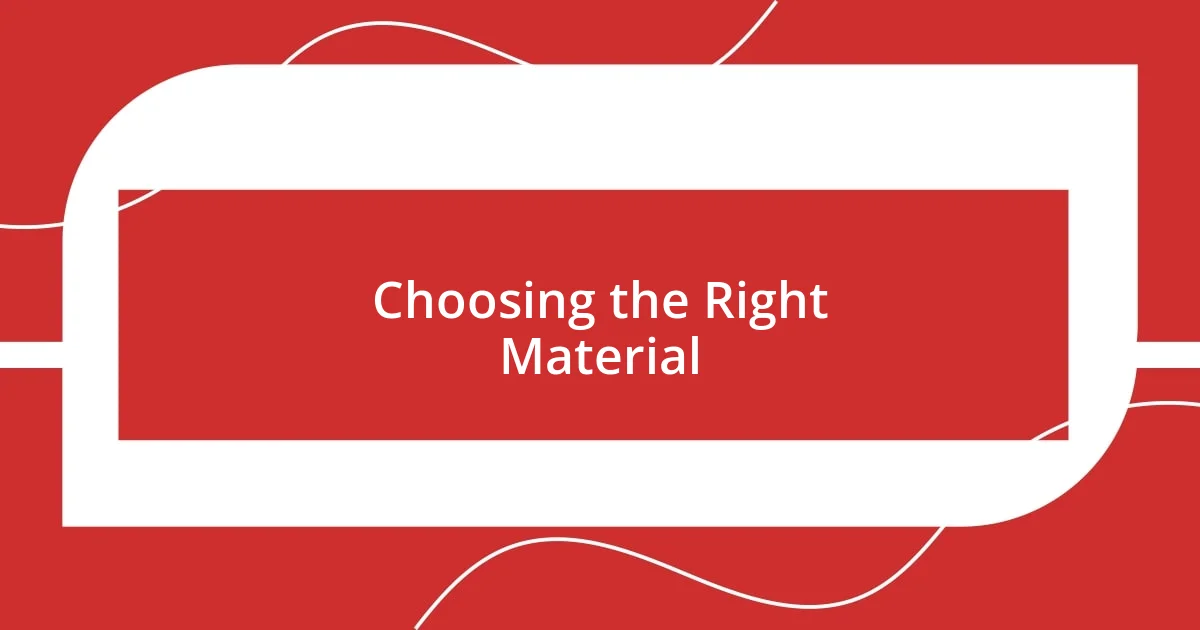
Choosing the Right Material
Choosing the right material for an audition can be daunting. I remember my first big audition where I chose a monologue that the casting director had seen performed countless times. I thought I could bring something new to it, but instead, I faded into the background. Since then, I’ve learned that selecting material that resonates with me personally is key; it transforms my performance and helps me stand out. Have you ever experienced that thrilling feeling when the words you’re saying perfectly encapsulate what you’re feeling inside?
Another important aspect is tailoring your material to the specific audition. When I auditioned for a comedic role once, I selected a quirky piece that highlighted my humor rather than opting for something dramatic, even though it was tempting. The casting team responded positively to my choice because it showcased my personality while aligning perfectly with the character. Think about it: when you match your material to the role and the production, it naturally elevates your audition.
Also, don’t be afraid to experiment with less common choices. I recall auditioning for a small, independent film and deciding to use a lesser-known piece that resonated deeply with my own experiences. The material allowed me to bring authenticity and sincerity to my performance, which left a lasting impression. Choosing something unique can be a risk, but when it pays off, it feels incredibly rewarding. What about you? Have you dared to take that leap with your material?
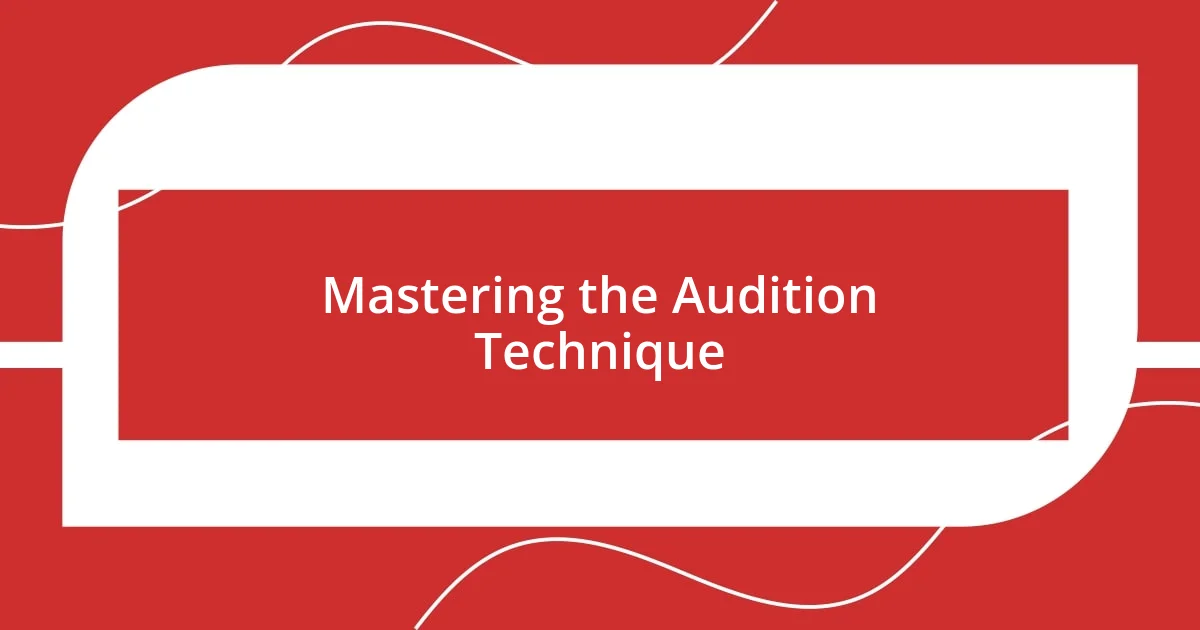
Mastering the Audition Technique
Mastering the audition technique is not just about rehearsing lines; it’s about how well you connect with the material and the audience. I often remind myself that every audition is an opportunity to tell a story. One particularly memorable experience was when I broke down a character’s motivations and emotions on a personal level. I tailored my delivery to reflect my own feelings of vulnerability, which surprisingly turned a cold reading into something powerful. Have you ever found that diving deep into a character’s psyche can make your performance feel more authentic?
I also prioritize my physicality in auditions. Understanding how my body moves in a given role is crucial. In one audition, I realized that embodying the character’s posture and movements helped reinforce their personality. I felt the shift as soon as I adjusted my stance—it was like flipping a switch. It’s fascinating to observe how something as simple as body language can transform your performance. Have you noticed how certain gestures or stances can add layers to your portrayal?
Another technique I cherish is embracing spontaneity. While preparation is essential, being open to the unexpected during auditions has led me to some of my best moments. During a callback, I made a slight, instinctual change to my tone that matched the energy of the casting team. It was a risk, but that choice seemed to resonate with them. What if you allowed yourself to be flexible and respond in the moment during your next audition? I truly believe that spontaneity can elevate your performance and create memorable experiences for both you and your audience.
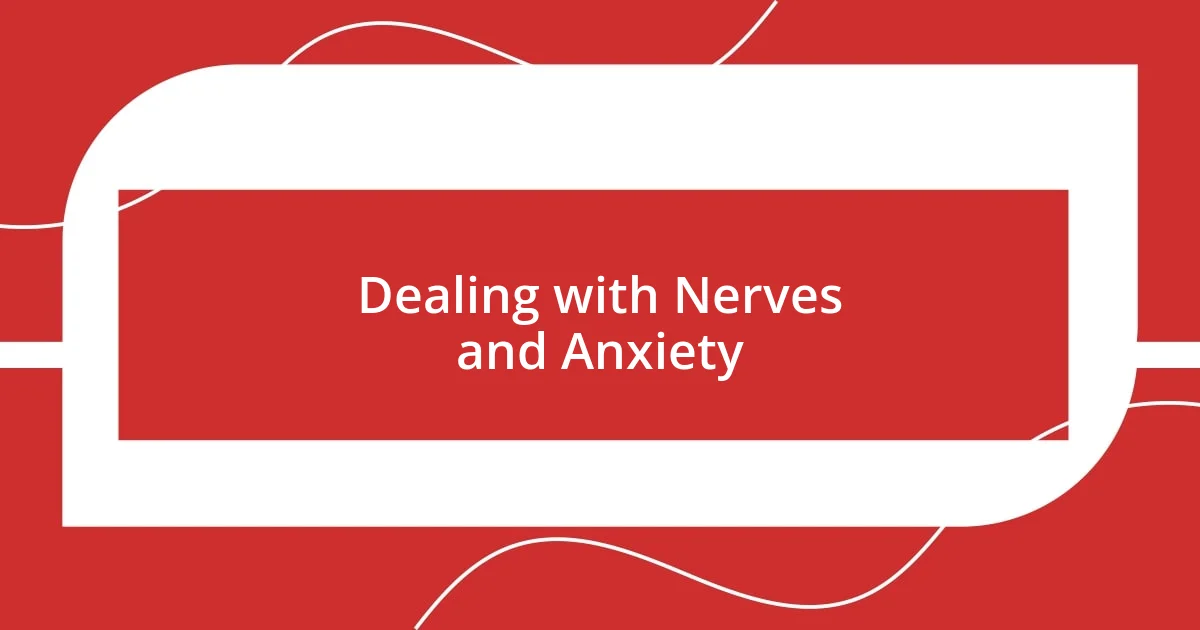
Dealing with Nerves and Anxiety
When it comes to dealing with nerves and anxiety, I find that grounding techniques can be incredibly helpful. Before stepping into the audition room, I take a moment to focus on my breathing—slow, deep breaths work wonders. I’ll often count each inhale and exhale, which helps to slow my racing thoughts. It’s interesting how something as simple as breath can anchor me in the moment, isn’t it?
Another approach that has really shaped my experiences is visualizing success. I remember vividly envisioning the room, the casting team, and even the applause at the end of my performance. This mental rehearsal not only calms my nerves but also allows me to approach auditions with a sense of excitement rather than fear. Have you ever closed your eyes and imagined yourself acing an audition? That shift in mindset is powerful.
Additionally, I’ve learned to embrace a certain level of vulnerability before an audition. Instead of trying to suppress my nerves, I acknowledge them as a sign that I care about the opportunity. I often whisper to myself that it’s perfectly normal to feel this way. Once I accept my anxiety, I notice it melts away, allowing me to connect authentically with the character. How do you approach your nerves? Finding that personal mantra or affirmation can really make a difference, don’t you think?
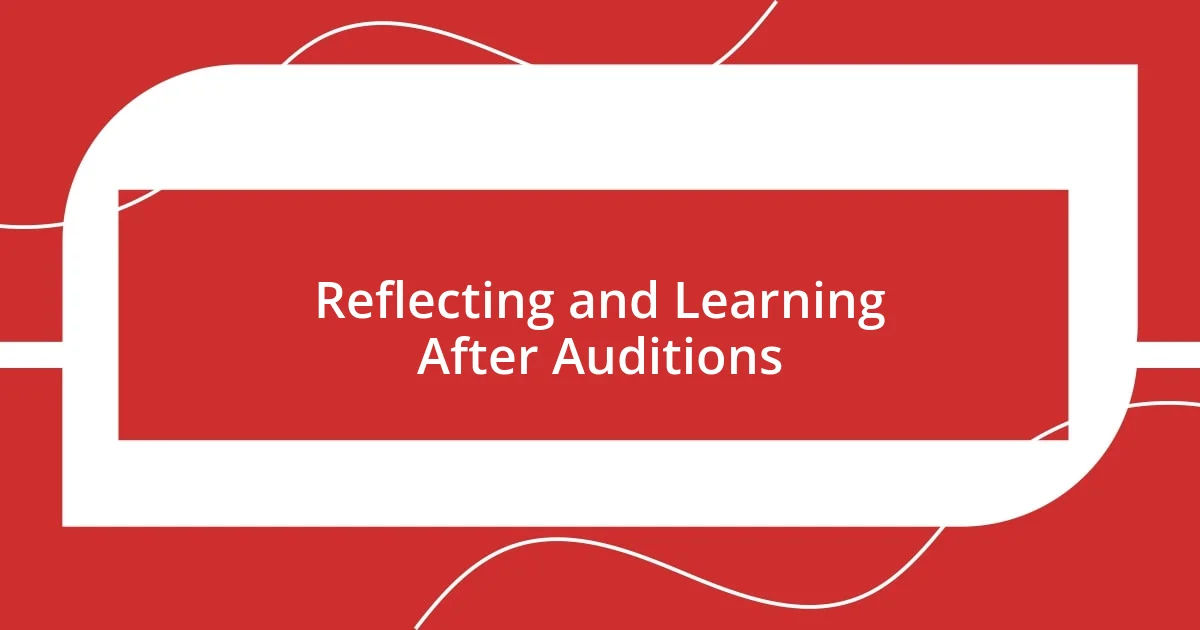
Reflecting and Learning After Auditions
Reflecting on my performances after auditions is a ritual I deeply cherish. I often find that journaling about my experiences helps me articulate what went well and what could be improved. Just the other day, I revisited an audition where I felt particularly lost on a line. Writing it all out clarified my thought process, making me realize I rushed through it instead of allowing the emotion to breathe. Have you ever looked back at a performance and discovered hidden nuggets of wisdom?
One of the most enlightening aspects of reflection is sharing my thoughts with trusted peers. After a recent audition, I connected with a friend who had seen me perform. Their perspective opened my eyes to aspects of my delivery I hadn’t considered, revealing how subtle adjustments could have made a big difference. It’s amazing how collaboration can deepen our understanding. Have you sought feedback from someone you respect? I’ve learned that constructive conversations can illuminate paths to growth I hadn’t seen before.
Ultimately, I see every audition as a stepping stone on my journey as an artist. Each experience, whether triumphant or challenging, contributes to my growth. I recently reflected on a particularly tough audition that left me feeling deflated. Instead of allowing it to linger, I decided to analyze what went wrong, reigniting my passion to tackle similar roles. Embracing the learning curve has become integral to my process—how do you navigate your own artistic challenges?

